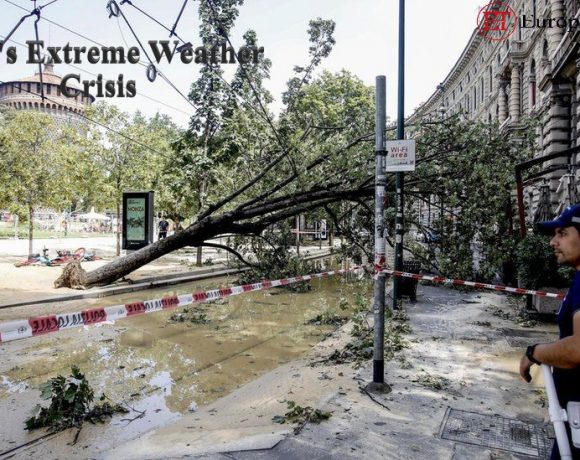
Italy is experiencing severe and unprecedented weather conditions. In Sicily, there are ongoing wildfires due to record-breaking temperatures, with Palermo being particularly affected. The fires have caused significant damage and are threatening towns and cities across the island. There have been evacuations of resorts and tourist areas, and Palermo Airport had to temporarily close due to the proximity of wildfires.
In the northern regions, violent storms and strong winds have uprooted trees, damaged buildings, and injured people. Some places experienced hailstones as large as tennis balls, which caused further damage to property and crops. Tragically, there have been casualties as a result of falling trees during the storms.
Local authorities have issued warnings and precautions to residents, advising them to avoid public parks and places with trees at risk of snapping off. The extreme weather has also affected the city of Milan, with the historical Sforza Castle closing to the public due to weather-related damage.
Italian officials, including the mayor of Milan, have acknowledged the impact of climate change on these extreme weather events and emphasized the need to take action. The situation is being closely monitored, and several regions have requested the government to declare a state of emergency.
The situation in Sicily has been exacerbated by an ongoing heatwave, with temperatures reaching more than 47.5°C (117°F) in Catania. Hospitals and emergency services are overwhelmed with patients seeking medical attention for smoke inhalation and heat-related illnesses. The fires are causing widespread environmental damage and have been described as an “unprecedented catastrophe.”
Prime Minister Giorgia Meloni has acknowledged the severity of the situation and the challenges faced in firefighting due to the combination of high temperatures and strong winds.
Overall, Italy is grappling with the devastating impact of extreme weather events, which have been linked to climate change, and calls for urgent action to address the issue are increasing.
Picture Courtesy: Google/images are subject to copyright

